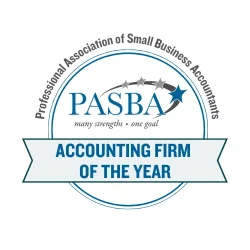Navigating the ever-changing rules for meals and entertainment expenses can feel daunting, but with the right guidance, you can maximize your deductions while staying compliant with IRS regulations. This guide will walk you through everything you need to know for 2024, including what’s deductible, what’s not, and how to document expenses properly.
Understanding the Basics: Meals vs. Entertainment
The IRS has strict rules about what qualifies as deductible meals and entertainment expenses. Thanks to the Tax Cuts and Jobs Act (TCJA), most entertainment-related expenses have been non-deductible since 2018. However, meals can still qualify for deductions—either 50% or 100%—if they meet certain criteria.
Here’s how the IRS defines these categories:
- Meals include food, beverages, taxes, and tips incurred during business activities.
- Entertainment refers to recreation, amusement, or activities such as sports events, concerts, and club memberships.
To qualify as deductible, expenses must be ordinary, necessary, and directly related to business.
What’s Deductible in 2024?
100% Deductible Expenses
Some expenses are fully deductible because they directly benefit employees or involve business transactions. Examples include:
- Company-wide events: Holiday parties, picnics, or other recreational activities for all employees.
- Food provided to the public: Snacks or meals offered during promotional events.
- Meals included in compensation: If meals are taxable to employees and reported on their W-2 forms, they qualify.
50% Deductible Expenses
Many business-related meals fall under the 50% deduction rule, provided they are properly documented. Examples include:
- Client meals: Meals with clients where business discussions occur.
- Travel meals: Meals for employees traveling for work.
- Conference meals: Food consumed at a conference, above and beyond the ticket price.
- Late-night meals: Meals provided to employees working overtime.
- Board meeting snacks: Food and beverages served during meetings.
Non-Deductible Expenses
Entertainment remains largely non-deductible, even if it has a business connection. Examples include:
- Tickets to sports events, concerts, or theater.
- Club memberships and initiation fees.
- Recreational outings like golf, camping, or sightseeing.
- Meals bundled with entertainment costs that aren’t itemized separately.
Example:
If you take a client to a concert and purchase a meal beforehand, only 50% of the meal cost is deductible, provided it’s itemized. The concert tickets are non-deductible.
How to Determine Deductibility
The key to determining whether an expense is deductible lies in its business purpose and proper documentation. Here’s what you need to ask yourself:
- Did the expense have a clear business objective, such as retaining a client or improving employee morale?
- Was the expense reasonable and not lavish?
- Was the meal or entertainment activity itemized separately on receipts?
Documentation is Critical
To claim deductions, you must keep detailed records of all meals and entertainment expenses. Here’s what to document:
- Name and location of the venue or restaurant.
- Date of the expense.
- Attendees and their business relationship to you.
- Purpose of the meal or activity.
- Details of the business discussion.
- Receipts or itemized invoices that separate meal costs from entertainment expenses.
Make sure to retain these records for at least three years in case of an IRS audit.
What’s Changed in 2024?
Most deductions for meals and entertainment remain consistent with the rules implemented in 2018 under the TCJA. However, the temporary 100% deduction for restaurant meals during 2021-2022 is no longer in effect. As of 2024, meals provided by restaurants are generally subject to the 50% deduction limit unless they meet specific exceptions.
Examples of Deductibility
- Example 1: You host a holiday party for all employees and spend $2,000. This expense is 100% deductible.
- Example 2: You take a client to lunch at a restaurant and discuss business. The meal costs $100. You can deduct $50 (50% of the cost).
- Example 3: You purchase tickets to a golf tournament for a client. This $300 entertainment expense is not deductible.
Key Takeaways
- Meals: Meals with a clear business purpose are either 50% or 100% deductible, depending on the situation.
- Entertainment: Most entertainment expenses are non-deductible unless directly tied to employee compensation or public events.
- Documentation: Keeping detailed records is essential for compliance and maximizing deductions.
Maximize Your Deductions with Confidence
Navigating meals and entertainment expenses doesn’t have to be overwhelming. Let J.R. Martin & Associates help you stay compliant while making the most of your deductions. Reach out to us today for expert guidance tailored to your business needs. Schedule a call to explore how we can simplify your tax planning and save you time and money.
Partner with a team that’s dedicated to your success!



